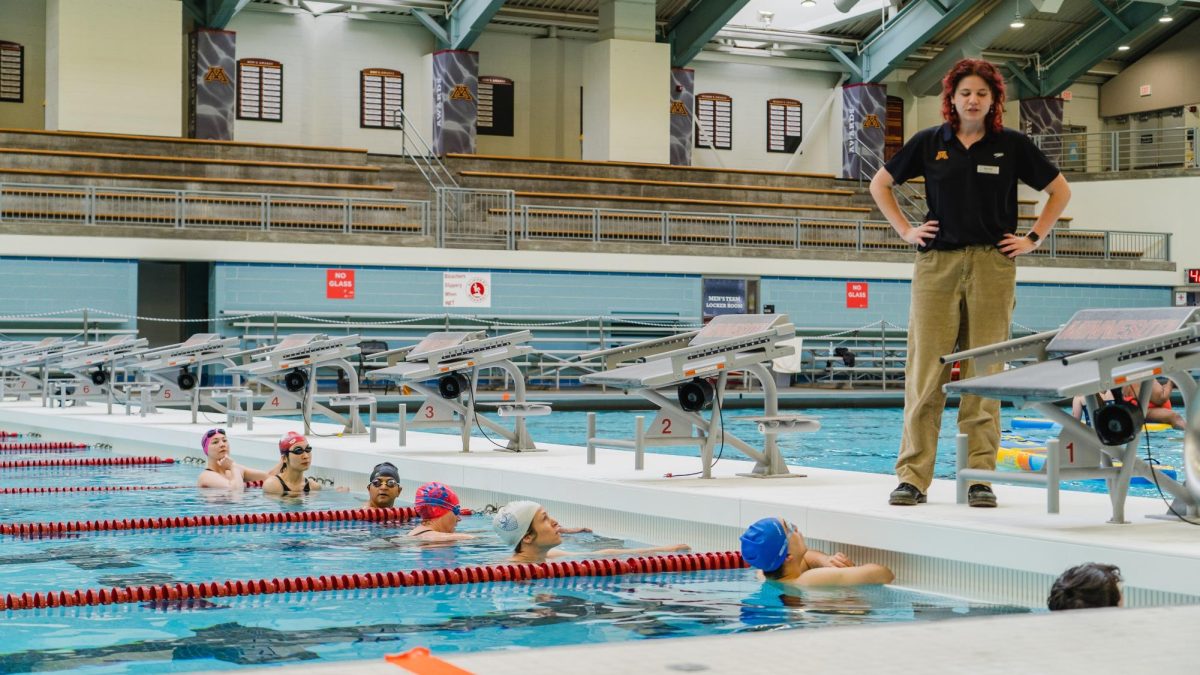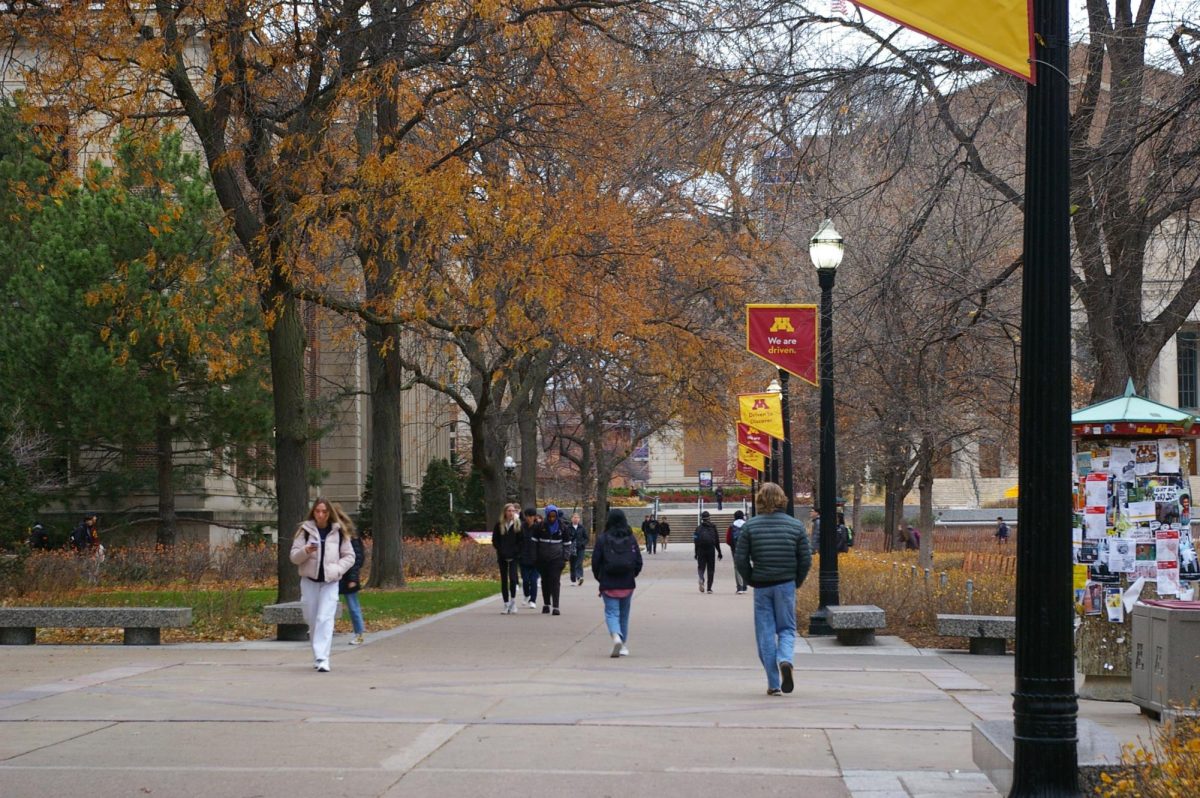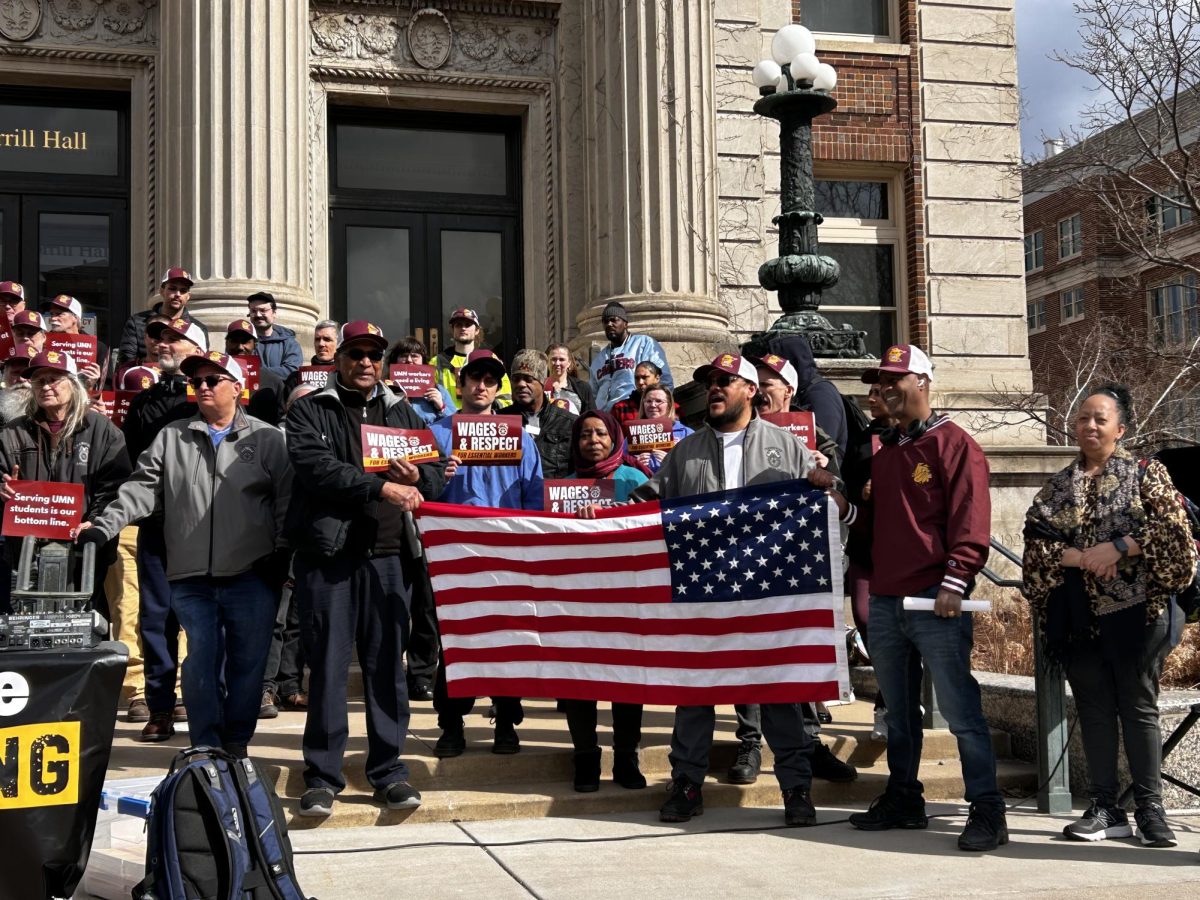The Institute on the Environment (IonE) at the University of Minnesota awarded a $1.1 million grant to fund eight sustainability projects focused on community partnership and collaboration.
IonE announced the 2023 Impact Goals grant awards on Twitter on June 5. The eight projects follow a two-year timeline and have funding of up to $200,000 for each project.
Melissa Kenney, Director of Research and Knowledge Initiatives at the IonE, said the funding for this grant came from a combination of the IonE’s resources, University investments from MPact 2025 and a donation from the Seeding The Future Foundation.
That donation is why they’re “able to catalyze so much work for that level of resources,” Kenney said.
Each of these projects focuses on sustainability efforts and achieving a carbon-neutral Minnesota. To qualify to receive the grant, each project had to collaborate with a community partner who was part of the research team, according to Kenney.
“A number of our projects had a couple of community partners that we’re working with them to help to define the problem and think about potential pathways for solutions,” Kenney said.
One of the grant recipients was the Regional Sustainable Development Partnerships (RSDP), which is involved with three of the new projects: carbon credits for food recovery, full circle, developing stakeholder-informed guidelines for net-zero energy affordable housing development and powering healthy food systems and carbon neutrality on a campus farm.
RSDP is a University extension that works on community-driven sustainability projects throughout Minnesota.
Andi Sutton, the executive director for the southeast branch of RSDP, said they got involved with the grant because the IonE had more funding opportunities than RSDP could provide for these projects.
“Usually RSDP grants are around one year in duration, are around anywhere from $2,000 to $12,000, are really helping to catalyze and create relationships, but they’re not at the scale of what’s possible with this Impact Goals grant,” Sutton said.
Sutton is involved with two of the three projects RSDP is a part of, including carbon credits for food recovery and the net-zero affordable housing project, in which RSDP is partnering with the Community Action Center (CAC) of Northfield.
According to Sutton, prior to the Impact Goals grant, CAC and RSDP had a pre-existing relationship. CAC previously received a grant from RSDP, which helped connect them with the Center for Sustainable Building Research to generate the first net-zero affordable housing designs in 2020.
RSDP had the opportunity to support further projects with CAC, Sutton said. CAC proposed two projects. One connected to the previous net-zero affordable housing work they had done and a second project focused on carbon credit food recovery.
“We knew that was a very exciting idea that would need a longer term, different kind of research relationship,” Sutton said. “We started working with them on a proposal focused on the net-zero housing, but that particular project is so multifaceted that the RSDP proposal was a teeny tiny slice of a multi-armed, big idea that CAC had.”
Because CAC had previously worked on the net-zero housing project, a research team was already in place, according to Sutton.
“I kinda got everyone in a room and we started brainstorming, ‘Let’s imagine what’s possible with two years and $200,000,’” Sutton said.
The research projects funded by the grant span both the Twin Cities and Duluth campuses. One of the projects based at the University of Minnesota-Duluth is assessing the role of Minnesota lake associations in improving water quality.
Afton Clarke-Sather, the geography and environmental sustainability department chair at the Duluth campus and associate at the IonE, is the program investigator for the project.
According to Clarke-Sather, the project came about from the work of Anna Peterson, one of his master’s students in the Water Science Resource Program, and her work on the effect lake associations had on water quality in Minnesota.
Lake associations are community organizations that address the specific needs or issues affecting lakes or rivers. There are over 500 known lake associations in Minnesota.
Clarke-Sather said they are partnering with Minnesota Lakes and Rivers Advocates, an organization that works to preserve water quality and keep away invasive species from lakes and rivers throughout Minnesota.
Community partnerships are an integral part of the IonE grants, Clarke-Sather said.
“[IonE]’s trying to have research be useful for the everyday person and not bound up in the ivory tower,” Clarke-Sather said. “I think it’s a real strength of the program.”


















